
The Greek port system is experiencing a period of significant developments. The Greek ports successfully maintained their operation under lockdown and other restrictions related to COVID. The pandemic was followed by changes and major crises in the maritime supply chains. Liner shipping routes and models to serve the needs of the global economy are reviewed, creating perspectives and challenges.
Private managers and owners of the two major Greek ports, Piraeus and Thessaloniki, as well as the public authorities responsible for the rest of the Greek port system, are trying to exploit the prospects created and address the related challenges.
At the heart of their efforts are the container sector and the strengthening of their presence in the international port market. Following a decade of continuous growth, which culminated in 2019, two consecutive years of reduction in the number of containers served (2020–2021) followed. This is therefore an attempt to reverse the stagnation that has been observed in the last two years, as a consequence of the crisis created by the pandemic. However, it is worth noting that the total traffic in 2021 was almost three times higher than the corresponding total a decade earlier.
Improving the connectivity of Piraeus and Thessaloniki
The increase in container traffic in Greece is mainly due to the dynamics that is taking shape in Piraeus and the assumption of its operation by an international terminal manager connected to one of the largest liner shipping companies (COSCO Shipping Ports Ltd). To a lesser but significant extent, the increase in container traffic is also due to the dynamics that developed after the privatisation of the port of Thessaloniki. The factor that seems capable of enhancing the long-term prospects of the two largest ports in the country is the upgrade of their connectivity, by integrating them into wider maritime transport networks.
Over the last five years (2017–2021), container traffic in Piraeus has increased by 28%, reaching 5.3 million TEUs. Piraeus is now the fifth largest port in Europe and the third largest in the Mediterranean after Valencia and Tangier-Med. During the same period, Piraeus expanded its integration into the main shipping lines. In particular, at the end of 2021, 9% of the recorded approaches concerned vessels with a capacity of 12,500–18,000 TEUs, 5% of which are ships with tonnage of more than 18,000 TEUs. Since 2018, Piraeus has been serving container ships of over 20,000 TEU.
The connectivity of the port of Piraeus has been upgraded. The port is currently an important hub directly linked to 72 ports in 30 countries. Seventeen (17) of these countries are in Europe, ten (10) in Asia and three (3) in Africa. Direct routes connect Piraeus with several of the world’s largest hub ports, such as Singapore (21 routes per month), Port Klang in Malaysia (6), Colombo in Sri Lanka (4), Rotterdam (15) and Antwerp (9). Catering vessels regularly serve ports in Turkey, Italy, Greece, Egypt and Israel. The above highlights the role of Piraeus in the Eastern Mediterranean region as well as in wider geographical networks.
This role is confirmed by the choice of all major shipping companies to enter Piraeus. The port mainly attracts (40% of approaches) vessels of the members of the Ocean Alliance – the alliance to which its owner (COSCO) is affiliated. The ships of the 2M alliance amount to about 15% of all approaches, while Alliance ships approach Piraeus to a lesser extent. COSCO vessels approach more frequently than any other shipping line (20% of total monthly approaches), followed by Hapag Lloyd and MSC, Evergreen and CMA-CGM vessels.
Similar achievements are made in the case of the port of Thessaloniki, which has seen a dramatic development in connectivity. The number of countries directly linked to the port has increased by 62%, the number of ports directly linked to it has increased by more than 53%, while the tonnage size of the smallest ship calling at Thessaloniki has doubled.
The port of Thessaloniki is currently directly linked to 22 ports in 12 countries. Catering vessels are mainly bound for Greece (30% of all ships calling at the port of Thessaloniki) and Turkey (also 30%) and less frequently in Cyprus, Egypt and Malta. The port of Piraeus is the most popular port of call before or after Thessaloniki, followed by Limassol and Asyaport, one of the nine Turkish ports with which Thessaloniki is directly connected. Thirty-six per cent of approaches to the port of Thessaloniki concern MSC vessels. The port ownership (via Terminal Link) CMA-CGM also has frequent approaches to the port (19%), with COSCO and X-Press catering vessels being the next most frequent users.
Compared to 2019, no changes have been recorded either in the size of vessels approaching or in the tonnage of the largest ship calling at the port of Thessaloniki. At the end of 2021, the average tonnage of container ships calling at Thessaloniki was 1,573 TEU. In addition, despite any developments, infrastructure upgrades were still in the planning stage and post-Panamax generation cranes were only delivered in May 2022. However, the operational improvements and the creation of a dry port in Sofia allowed the port of Thessaloniki to become the most dynamic gateway port in the region.
Prospects
The prospects of Greek ports are mainly linked to their ability to respond successfully to structural changes in the container market in the Mediterranean and beyond, as recently revealed by IAPH World Port Tracker.
In the last year alone, the number of container ships in Mediterranean ports has been reduced by –11.5%. At the same time, the share of container ships of over 8,500 TEU increased by 3.9%. Among these larger vessels are the largest container ships, which are deployed between the main maritime East-West links – with many ports in the region publishing arrivals of ships of over 20,000 TEUs.
The most significant change is the increase in the number of containers (un)loaded per ship, which at the end of 2021 reached record levels. Since the beginning of 2020, on a quarterly basis, vessel calls in Mediterranean ports have been combined with the servicing of a larger number of containers. On an annual basis, at the end of 2021, the average number of containers served per approach was 5.5% higher. Cases of service of 3,001–4,000 TEUs per vessel approach increased within three years (2019–2021) by 26%. The number of approaches of vessels (un)loading between 4,001–6,000 TEUs has increased and is now more than double the number of approaches noted in early 2019. The development is even more impressive in ship calls where ports serve a larger quantity of containers, i.e. 6,000 TEUs or more. At the end of 2021, the number of calls of vessels of this tonnage in Mediterranean ports was nine (9) times greater than at the beginning of 2019. Against this background, it seems that the productivity of Mediterranean ports is being put to the test by the trends in container movements per hour: any improvements noted in 2019–2020 seem to have evaporated in 2021.
Under these circumstances, it is important to upgrade the infrastructure in Greek ports as well as to increase their capacity. In Piraeus, there have recently been signs of bottlenecks, turning the course of investments into a critical one, while the discussion on the development of a fourth container terminal began. Similarly, the long-awaited expansion of the container terminal seems to be progressing in Thessaloniki. Investment is urgently needed in both cases to improve competitiveness.
Nonetheless, much will depend on the capacity of Greek ports to improve their efficiency and effectiveness. Improvements at an operational level (including digitalisation and efficient service of existing and potential users), better monitoring of performance, further improvement of connectivity with the hinterland to create better supply chains –e.g. rail connections, the distribution centre in Thriasio (Piraeus) and dry ports in Skopje (Thessaloniki)–, the resolution of outstanding labour relations as well as improvements in port-city relations will allow the larger Greek ports to strengthen their position.
The progress of the current privatisation programme –despite its peculiar choices and possible negative impacts– may also offer more choice to potential users. Alexandroupolis, Heraklion and Igoumenitsa will soon acquire a new owner and Kavala a new cargo terminal operator. It is not surprising that in the early stages of the procedure, third parties expressed an interest in the development of container management activities in these ports. The addition of a third “player”, while avoiding monopolistic situations, would provide users with more choice and thus enhance the competitiveness of the Greek port system.
Thanos Pallis is Professor of Port and Maritime Economics & Policy, Department of Maritime Studies, University of Piraeus, and President of the International Association of Maritime Economists (IAME). 
George Vaggelas is Associate Professor of Maritime Shipping and Ports at the Department of Shipping, Trade and Transport of the University of the Aegean. 
They are the authors of the publication on the Greek port system – GREPORT 2022 which is published every two years.
Latest News

Economist: Greece Included in the Best Performing Economies in 2024
Meanwhile, Northern European countries disappoint, with sluggish performances from the United Kingdom and Germany.

EasyJet Expands Its Routes from Athens
The airline’s two new routes will be to London Luton and Alicante and they will commence in summer 2025.

Capital Link Forum Highlights Greece’s Economic Resurgence; Honors BoG Gov Stournaras
Capital Link Hellenic Leadership Award recipient, Bank of Greece Gov. Yannis Stournaras, an ex-FinMin, was lauded for his pivotal role during Greece’s economic recovery

Tourist Spending in Greece Up by 14%, Visa Card Analysis Shows
Greece’s capital Athens emerged as the most popular destination, recording a 17% increase in transactions with Visa cards, surpassing even the cosmopolitan island of Mykonos.

Inflation in Greece Unchanged at 2.4% in Nov. 2024
The general consumer price index (CPI) posted a 0.4% decrease in November compared to the previous month

2024 Christmas Holidays: Extended Shop Hours Schedule
The 2024 Christmas Holidays extended shop hours schedule commences on Thursday, December 12 and runs until the end of the year.

ELSTAT: Seasonally Adjusted Unemployment Down in October
The number of employed individuals reached 4,284,694, an increase of 67,723 compared to October 2023 (+1.6%) and 22,002 compared to September 2024 (+0.5%).

Greek PM’s Chief Economic Adviser Resigns
In the post on his Facebook page, Patelis did not disclose the reasons that led him to step down.

“Masdar Invests in the people of Greece and in the vision of TERNA ENERGY”
Four messages from the CEO of Masdar, the Arab renewable energy giant, after its acquisition of 70% of TERNA ENERGY

Lloyd’s List Greek Shipping Awards 2024: Honors for leading companies and personalities in the Greek shipping sector
20 awards presented at the 21st annual Lloyd's List Greek Shipping Awards

















![Χειμερινή εξοχική κατοικία: Οι Ελληνες γυρνούν την πλάτη παρά την πτώση των τιμών [γραφήματα]](https://www.ot.gr/wp-content/uploads/2024/12/Capture-19-90x90.jpg)










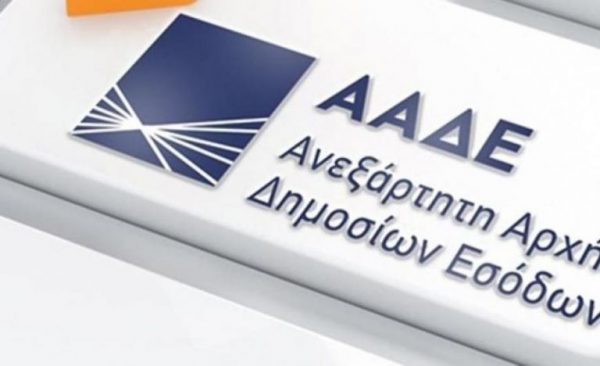
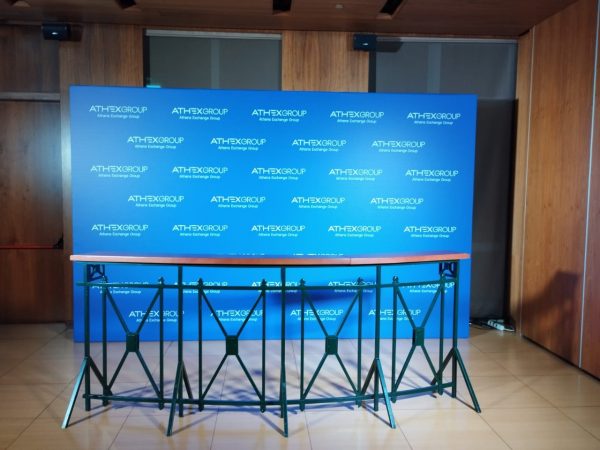


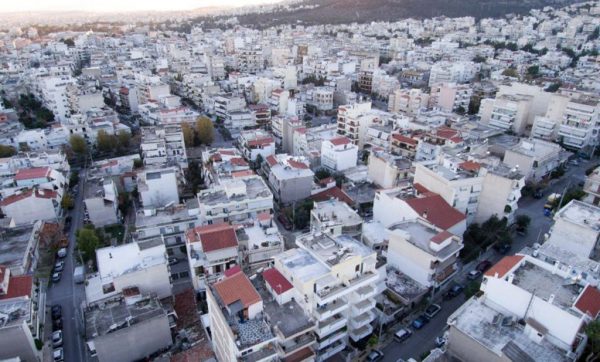

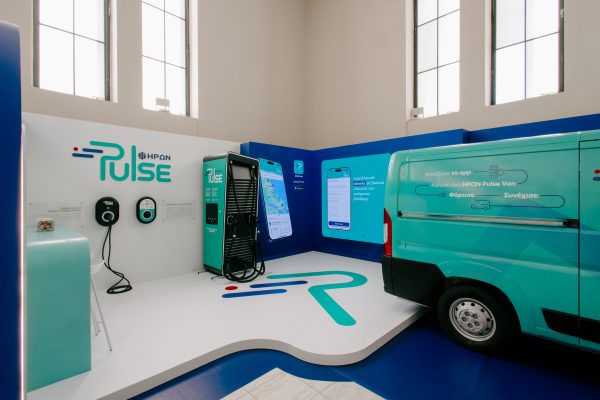




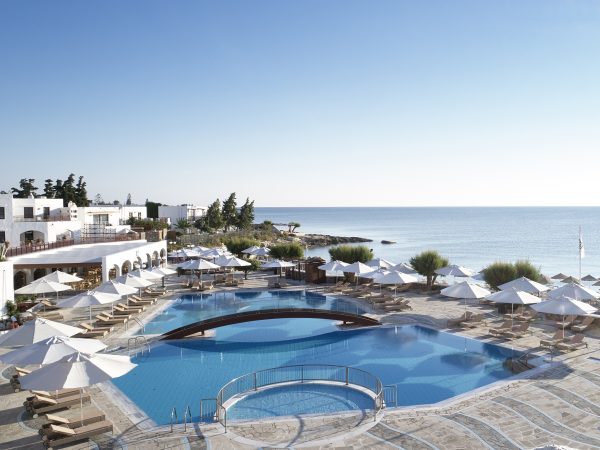


 Αριθμός Πιστοποίησης Μ.Η.Τ.232433
Αριθμός Πιστοποίησης Μ.Η.Τ.232433